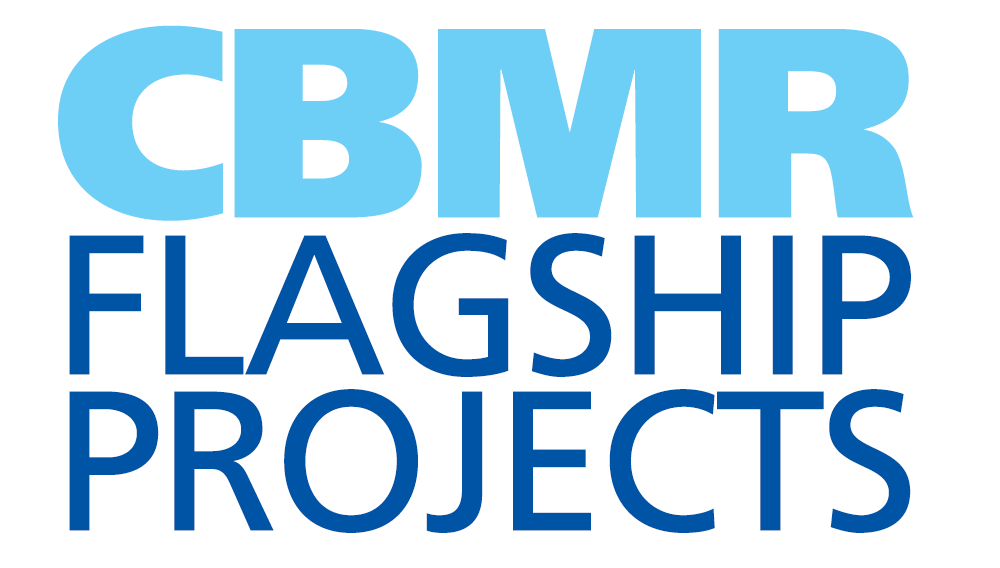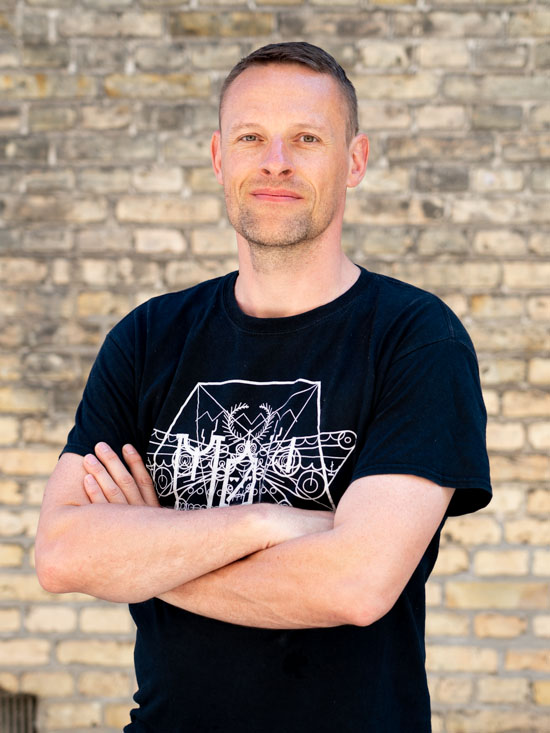The World is in You
This innovative public engagement project is centered around a major art/science/history exhibition at Kunsthal Charlottenborg in the fall of 2021, featuring metabolic perspectives on the relationship between body and environment.

Areas within basic metabolic science such as circadian biology, epigenetics and microbiome research raise fundamental and pressing questions about the relationship between body and environment – connecting human experience to molecular mechanisms. The World is in You is designed to engage a diverse audience through a mixture of science, art and cultural history – a practice developed at Medical Museion and Program 4 over the past decade with exhibitions such as Mind the Gut and Metabolic Machines.
Throughout the life span of the project – before, during and after the exhibition – the project will produce an array of public activities, including debates, movie screenings, performances, podcast series, and lectures. In these, researchers, artists and members of the public will engage with the topics of the project, sharing and exploring understandings of how the human body is shaped by the larger, ultimately planetary forces in which it is embedded. Impacts will include an enriched, more nuanced public debate, giving audiences confidence to connect complex science to personal experience and cultural expression. The curatorial approach continues the Program’s work breaking new ground in interdisciplinary practice, and we will evaluate the outcomes of the project using a variety of tools, from visitor surveys and in-depth interviews to expert peer reviews.
The World is in You focuses on three scientific themes that are well-established in CBMR research, each represented by key group leader collaborators:
- Circadian biology: Associate Professor Zach Gerhart-Hines, and Professor Juleen Zierath
- Epigenetics: Professor Romain Barrés
- Microbiome research: Associate Professor Mani Arumugam
The project is also connected to a number of ongoing research projects; Body Time (PI Louise Whiteley, postdoc Kristin Stirling); Metabolic Objects (Assistant Professor Martin Grünfeld), and Microbes on the Mind (PI Louise Whiteley), funded by a Velux Foundation core group grant. Researchers from these projects have participated in the exhibition research and curation, developed new collaborative artworks, and will feature within the exhibition’s event programmes.
The exhibition involves an extensive list of collaborations with both local and international artists, including Anna Dumitriu, Andrew Carnie and Luke Jerram, scientist advisors from institutions including the Niels Bohr Institute, Cardiff University, NASA, and Universitat Röhr, and other museums from which we are loaning objects include the Danish Workers Museum, Bayer Archives, and Steno Museet. A final project seminar will bring together many of these participants, solidifying new connections towards future collaboration.
Alongside the exhibition collaborators, the project is also resulting in a series of high-profile Danish cultural and media partners, including articles published in Politiken, events at Golden Days and Bloom Festival featuring CBMR scientists, and film screenings at The Danish National Film Institute. The exhibition venue – one of the most prominent contemporary art spaces in Denmark – and these high profile media partners will greatly expand our presence on the national cultural scene, supporting future development plans.
As the title suggests, The World is in You takes its point of departure in the connectedness of body and environment, with a particular emphasis on how larger, ultimately planetary, structures shape and influence the fundamental structures and day-to-day life of the body. The notion that body and environment are connected has a deep significance and broad public interest in the beginning of the 21st century: We see and experience how we are changing the planet around us, and there is an increased interest in how those changes are affecting our bodies in return. We are experiencing the realities of our connectedness both ‘downwards’ to the microcosmic world of bacteria, fungi, viruses and other microorganisms living on and in our bodies, ‘sideways’ as traces of the substances we use and consume echo in our physiology, as well as ‘upwards’ to the macrocosmic planetary structures that support our very existence. The project thus takes a wider, philosophical view of basic metabolic science and the deep cultural issues it speaks to, but grounded in knowledge and communication of the molecular workings of the body.
Alongside the thematic content, the project is also an experiment in ways of engaging the public with complex basic biomedical science. It asks: How can we best engage an audience in complex science that is still ‘in process’, rather than engaging them in specific, fixed results? How can we simplify without dumbing down, and how can we bring out hidden assumptions for debate? Such questions are a focus within the contemporary science communication literature, and this project aims to contribute new examples and analyses to the field. Sustained encounters with complexity are a pathway to strengthen the debate against the many forces clamoring for the rejection of well-founded, nuanced science in favor of quick fixes. In an age of fake news, fast fads, science skepticism, climate change denial and much more, there is an increasing need for creating spaces in which a broad audience can meet and discuss science as it unfolds. The World is in You is focused on creating such spaces and such encounters, placing science alongside art and history as a mutually enriching tapestry of forms of knowledge. Collaboration across disciplines is fundamental to the project – affecting not only public audiences but also project participants from the museum, center, and other stakeholder groups.
The project is built on a 4.6 million DKK grant from the Novo Nordisk Foundation’s thematic program for innovative science communication and debate on science and technology, and is further supported by the Velux Foundation, Bikuben Fonden, Beckett Fonden, Aage og Johanne Louis-Hansens Fond and the Direktør Esben og hustru Tanja Neergaard Dinesens Fond.


